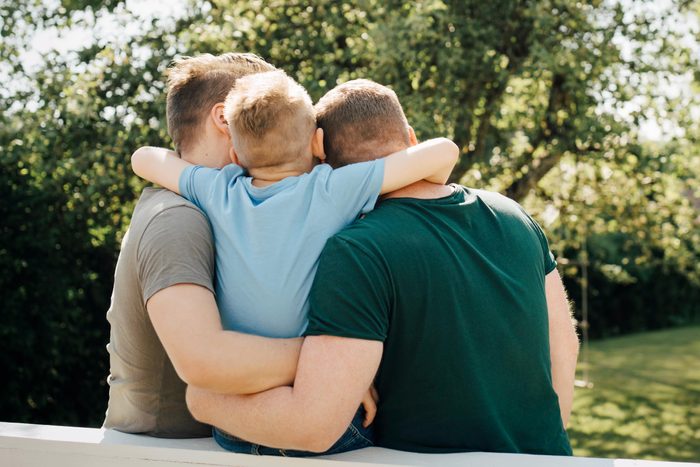
A 2020 study from Rutgers University found that the healthcare system today does not fully address the needs of gay men. This disconnect leads to major gaps in care, such as missed screenings, overlooked mental health needs and a reluctance among gay men to seek services like urgent care, walk-in STI testing clinics or specialists.
While experts say that change is occurring, implicit biases are often still at play among healthcare providers. This refers to unintentional forms of discrimination, such as making assumptions about someone’s lifestyle, behaviors and health risks. That’s why even the most well-intentioned physicians may have blind spots—and gay and bisexual men should be prepared to advocate for their needs. Doctors specializing in working with the LGBTQ community offer up these questions to ensure those needs are being met.
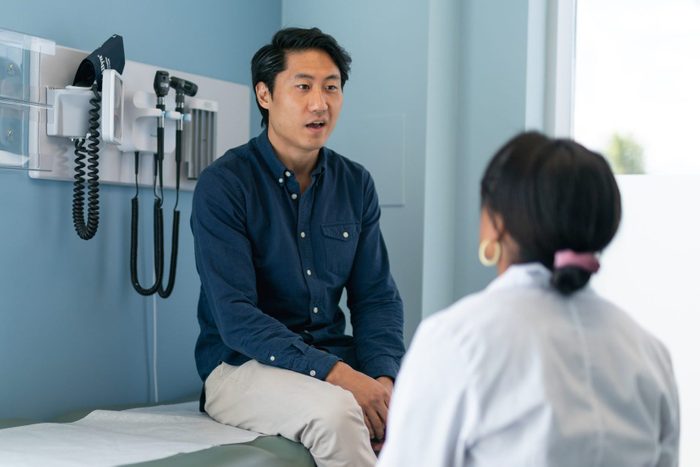
1. Does this clinic have a gay doctor?
The Rutgers study found that gay men who disclosed their sexual orientation were more likely to agree their healthcare needs were being addressed—and that can be easier when working with someone you relate to. “There’s a lot of data that shows people want to be seen by healthcare providers they think understand them and are similar to them,” says Ryan Sultan, MD, a Columbia University professor and doctor who specializes in working with the LGBTQ+ community.
A great place to start is finding an LGBTQ+ community-based organization that will have resources for support groups and lists of queer clinicians in your area, says Carly Linn, LMSW, who works as a therapist at The Dorm, an intensive outpatient treatment program offering affirming care for young adults.
Telehealth visits can also help decrease access barriers, adds Mark Leondires, MD, the founder and medical director at Illume Fertility and founder of Gay Parents To Be. “They may feel more comfortable visiting with a new provider in their own environment, feel more physically and emotionally safe not meeting in person, and it can also make it easier to schedule more appointments to evaluate different providers.”

2. Can I have a mental health screening?
“Getting mental health treatment can be preventative; it’s prophylactic,” Dr. Sultan says. “Your threshold for asking for mental health treatment should be very, very, low.” People in the LGBTQ+ community are three times as likely to experience a mental health disorder—and so if you’re having difficulty managing stress, your emotions or body image (note that eating disorders and body dysmorphia disproportionately affect gay and bisexual men,) bring up these concerns with your doctor. Early intervention leads to improved outcomes, Dr. Sultan emphasizes.
Providers aim to connect patients with healthcare professionals they know are experienced in working with the LGBTQ+ community—and it’s another area where remote healthcare drastically improves access, says Renaldo Barrios, NP, a primary care provider with an emphasis on LGBTQIA care with One Medical. “Telehealth is a beautiful thing,” he says. “A provider could live in San Francisco where they see many patients in the LGBTQ+ community, but can connect with patients in places like Mississippi or Texas where there may be a lack of LGBTQ+ providers.”
I’m a Psychotherapist—Here Are My 5 Keys to Letting Stress Go

3. Is this abuse?
“I think one of the biggest barriers for gay men is that we have this stereotype of what intimate partner violence (IPV) looks like,” Dr. Sultan says. “People need to be aware that IPV can happen in any relationship, and it’s usually a progressive issue that escalates.”
The three components of an abusive relationship are power, control and manipulation, Linn says. “Abuse is fostered in an environment where someone is isolated from relationships, resources and outside perspectives,” and this can look like someone trying to control your finances or relationships, call you names or make you feel worthless. Your doctor can help you access trauma-informed care. Still, if you aren’t getting the resources you need from your provider, you can call a domestic violence hotline or LGBTQ+-specific organizations such as the Anti-Violence Project, Linn says.
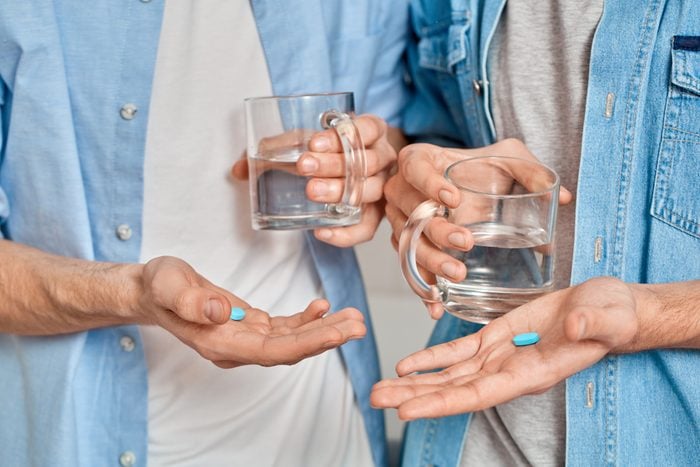
4. Should I be on PrEP?
Gay and bisexual men are still at a disproportionately higher risk of HIV, though according to June 2023 research published in BMC Public Health, LGBTQ+ men often underestimate their HIV risk. “HIV is very treatable today, but it’s still a chronic condition with long-term effects,” Dr. Sultan says. PreP (pre-exposure prophylaxis) is a medicine that helps prevent HIV infection—with a 99% success rate. “The data on how well PrEP works is nothing short of miraculous.”
Dr. Sultan says all LGBTQ+ men should ask their doctors about PrEP. “There are anxieties about that, sort of like an internal homophobia,” he explains. “But people need to shed these discomforts, [PrEP] allows you to be sexually active in the way that you want—it’s liberating, and no one should feel shame over that.”
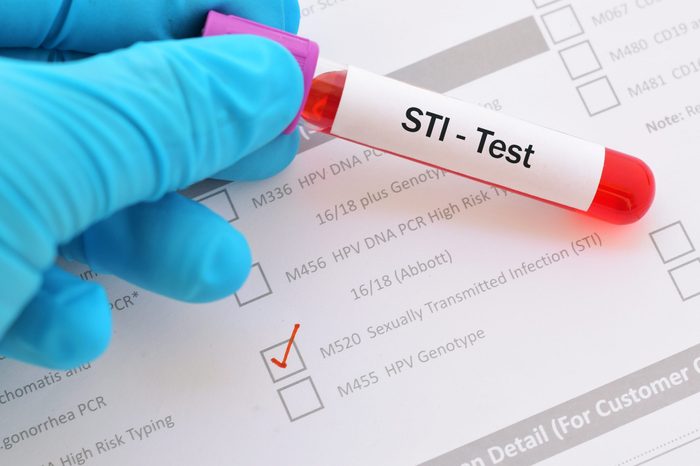
5. When should I get tested for STIs?
Even if you’re on PrEP, sexually active gay and bisexual men should be getting tested for sexually transmitted infections and diseases every three months, Barrios says. “A lot of these infections can take a little while to show up in a test or physically show symptoms,” he explains. And some of the most common STIs, such as syphilis, gonorrhea and chlamydia, are easily treated when caught early.
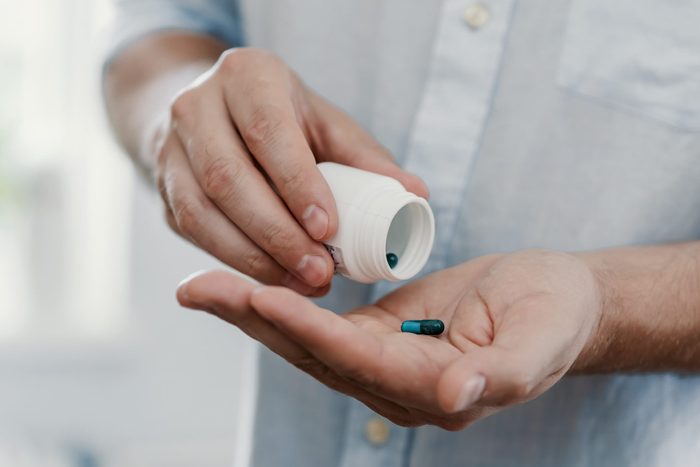
6. What should I know about PEP?
If you’re not on PrEP and think you may have been exposed to HIV, a medicine called PEP (post-exposure prophylaxis) can help prevent an HIV infection if taken within 72 hours. The sooner you start, the better, according to the CDC. PEP is not a substitute for other methods of HIV prevention, however, so talk to your doctor about your risks, strategies for prevention, and when to turn to PEP.
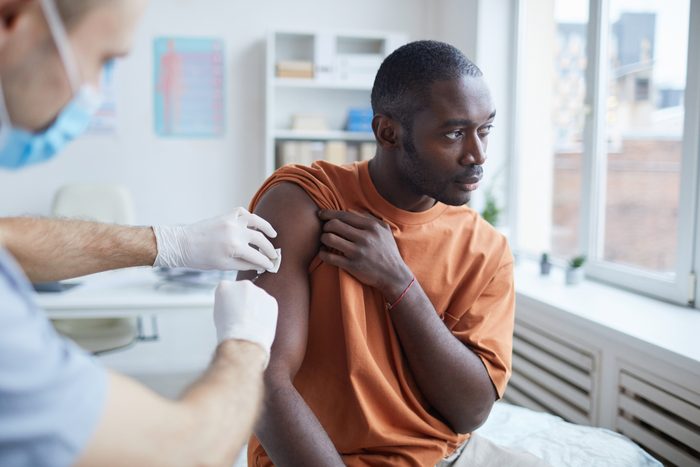
7. Should I get the HPV vaccine?
The human papillomavirus (HPV) is most commonly associated with causing cervical cancer in women, but it’s also responsible for most anal and oral cancers. Research shows gay and bisexual men are 20 times more likely to be diagnosed with anal cancer and may be at a higher risk for oral cancer.
While the HPV vaccine effectively reduces your risk of HPV-related cancers, awareness is low among LGBTQ+ males. According to research published in Vaccines, only 13% of US gay and bisexual men under age 26 have received any doses of the HPV vaccine. Though it’s most effective when administered at a young age, men up to age 45 may be eligible—so talk to your doctor if you’re unvaccinated to lower your cancer risks.

8. What are my options for parenthood?
Gay couples who want to have children may choose between adoption or biological pathways to parenthood, Dr. Leondres says. “To have a biological child, a couple will work with an egg donor and a gestational surrogate, as their pathway to parenthood requires the help of two women.” This process can take up to 24 months to complete—and the costs can be high. “Adoption is an option for many fathers-to-be; unfortunately, adoption for same-sex male couples isn’t even legal in every US state or with every adoption agency.”
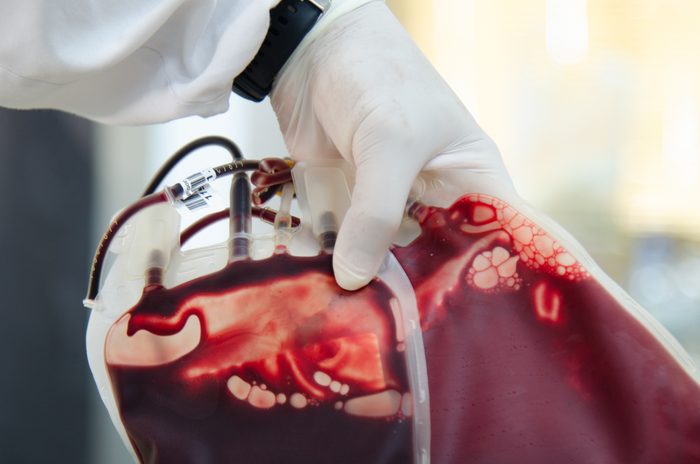
9.Can I donate blood?
The US Food and Drug Administration recently overturned a longstanding policy that prohibited most blood donations by gay and bisexual men. The updated requirements now include a series of “individual risk-based questions” for all blood donors, regardless of their sexual orientation.
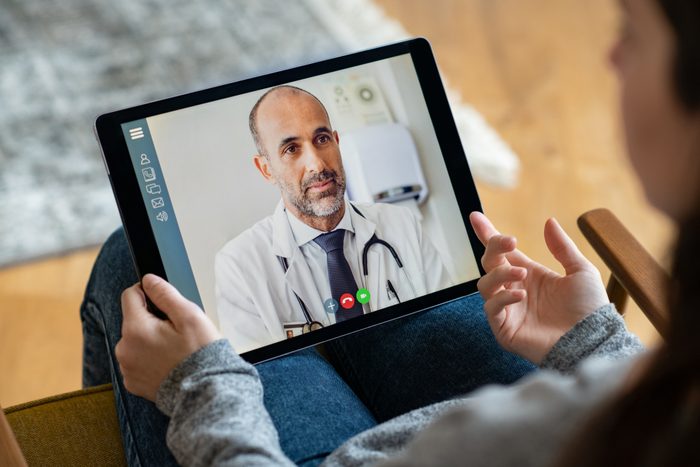
10. When should I schedule my next appointment?
A study from the Cleveland Clinic shows that 65% of men—regardless of sexual orientation—avoid seeking medical care for as long as possible. And research from UCLA found that gay and bisexual men are even more likely to delay medical care than straight men. Given that LBGTQ+ men are at a higher risk for certain types of cancers, chronic diseases, and mental health problems—all of which respond best to early treatment—it’s important to ask your doctor when you’re due for follow-up appointments and screenings.
Stay well with The Healthy @Reader’s Digest newsletter and follow The Healthy on Facebook, Instagram, and Twitter. Keep reading:
